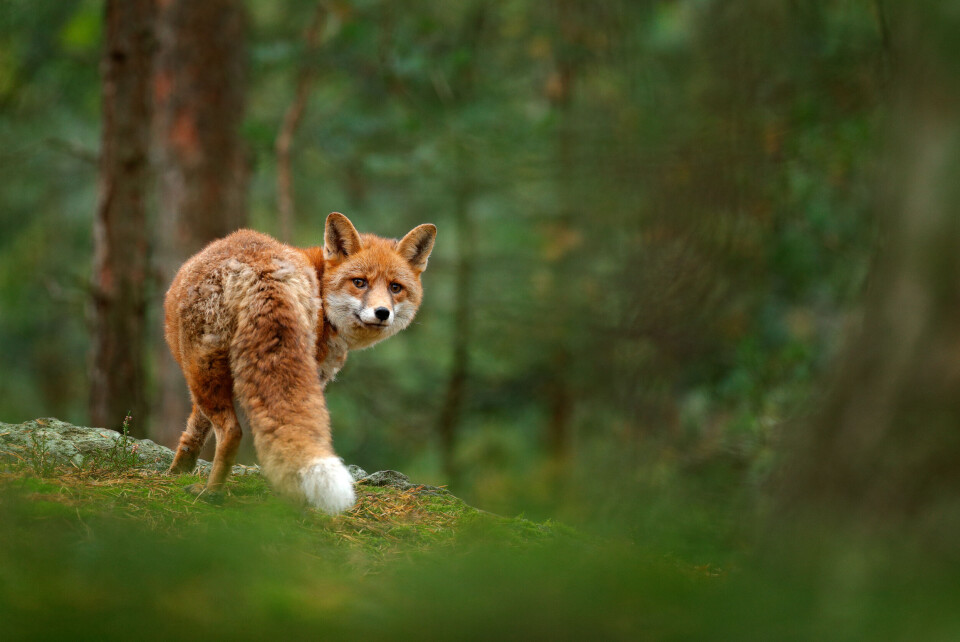-
Are new UK pet passports being introduced? Will they be accepted in France?
UK made easier pet travel one aim of talks earlier this year
-
French first as black wolf pack confirmed as living in Var
Female with black coat gave birth to four pups who inherited rare fur
-
Investigation launched after hunter fires at wild boar just feet from a busy road in central France
A 76-year-old man was taken into custody after the incident
Should foxes still be classed as ‘pests’ in France?
The animals can currently be hunted and killed all year round, but environmentalists say their status should be changed as, far from being a risk to nature, they actually help it

Animal welfare and environmental associations have questioned whether foxes should continue to be classed as pests in France as the damage they are said to cause is overestimated, campaigners say.
Foxes are currently considered as a “species likely to cause damage” and as “sedentary game” in 91 departments in France, meaning they can be killed by hunters all year round. In French, this status is known as “espèce susceptible d’occasionner des dégâts” (ESOD).
However, environmentalists have said that foxes do not represent as much of a risk as this status suggests, and that their year-round killing should not be allowed.
Marc Giraud, spokesperson of l’Association pour la protection des animaux sauvages (Aspas), told Le Monde: “Our aim is to change the status of the fox so that it is considered game, and can only be hunted during the hunting season.”
On March 31, the association won a victory in court in Rouen, in a case taken by the associations Aspas, Agir pour le vivant et les espèces sauvages (AVES France), and Ligue pour la protection des oiseaux (LPO).
The administrative court cancelled a prefectural decree in Seine-Maritime that had authorised the killing of 850 foxes per year in the region.
Richard Holding, communications officer at Aspas, said: “The jurisprudence that is emerging is interesting. As soon as we attack, we are sure to win.”
Foxes have historically been allowed to be killed year-round in the interests of the protection of fauna and flora, and agricultural, forestry and aquaculture activities; and the perceived risk of illnesses thought to be spread by foxes, such as alveolar echinococcosis.
Hunters also say that their activities help to regulate the species, and that without hunting, figures suggest that the population would soar.
Yet, fox advocates reject these arguments put forward by hunting association la Fédération nationale des chasseurs (FNC) and the departmental commissions of la chasse et de la faune sauvage (CDCFS), the latter of which is in charge of applying the classifications.
Veterinary trainee and founder of fox refuge le Clos des Renardises, Carine Gresse, said: “Foxes live and reproduce according to the food resources available in its territory. The number of fox cubs per litter can vary from one to seven. There is no monitoring or counting, only estimates. It's an aberration to claim [that hunters] regulate [the species] when we don't keep records.”
The FNC states that it kills 500,000 foxes per year, but environmental associations believe that the real number is closer to 600,000-1 million. The Ecology Ministry maintains that it allows “withdrawals” of 430,000, and that other “destructions” are monitored at departmental level.
Ms Gresse said that the argument that killing foxes helps to protect farms does not hold water.
She said: “75% [of fox food] are small rodents, which makes it an excellent agricultural aid and a means of controlling the spread of certain diseases.”
Mr Giraud, from Aspas, said that "lyme disease is carried by ticks via rodents. Their predators therefore limit its spread”.
Advocates also say that foxes help reduce the amount of pesticides and insecticides needed in nature, helping to save money, due to their prey being mainly small rodents.
In Doubs, a prefectural decree in 2019 removed the all-year hunting allowance in 117 communes.
Aspas also highlighted that foxes help to remove sick animals and also spread tree and other seeds through their droppings, making them even more useful to the environment.
Related articles
French election candidates meet hunters: what are they proposing?
Hunter killed by stray bullet during hunt in central France
Bid to have legendary Corsican ‘fox-cat’ listed as a new species
























